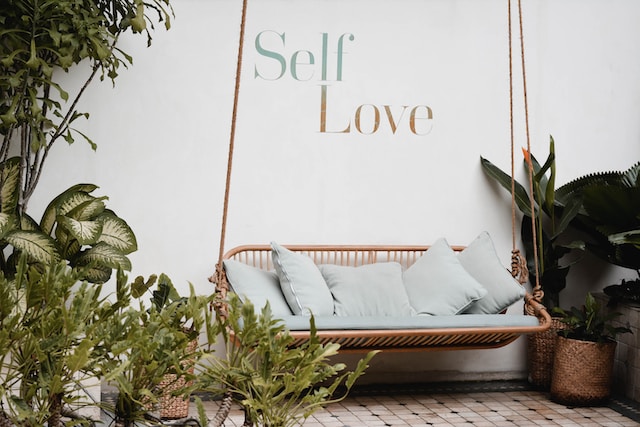Self-love and self-care are growing conversations in India. With immense societal and cultural pressures, many Indians struggle to practice genuine self-love. However, nurturing a compassionate relationship with oneself holds incredible power for improving mental health, relationships, and overall wellbeing.
This blog will take you on a journey of cultivating self-love – identifying common barriers, actionable ways to show yourself care and compassion, and continuing lifelong practices of self-acceptance.
What is Self-Love and Why is it Important?
Self-love simply means caring for and accepting ourselves unconditionally. It looks like being our own best cheerleader, making time to decompress and relax, and quelling our inner critic.
Research shows self-love has incredible benefits:
- Improved confidence and self-esteem: Self-love silences our inner critic and builds up a well of confidence and self-worth we can tap into during challenges.
- Healthier relationships: We accept love from others mirroring the love we show ourselves. Self-love also sets boundaries preventing toxicity or abuse.
- Decreased anxiety and depression: Negative rumination drops dramatically when we channel more self-compassion. Our mental health strengthens.
- Overall wellbeing: With better self-worth and mental health, we set goals aligned with our authentic desires and feel empowered pursuing our definition of success.
However, for many Indians, genuinely caring for themselves remains difficult with cultural norms emphasizing self-sacrifice for the collective family over individual needs. The journey of self-love takes rooting out societal conditioning and making space for self-care.
Common Barriers to Self-Love in India
Several cultural and societal norms pose challenges:
Cultural and Societal Beliefs
- Collectivism: Indian culture nurtures interdependent, collective family relationships rather than individualism and self-focus. Pursuing solely individual passions feels conflicting.
- Self-sacrifice: Especially for women, self-sacrifice for the family comes engrained from a young age. Self-care sparks guilt over neglecting others.
- Gender roles: Traditional gender roles further dictate women serve others often suppressing women’s autonomy and desires.
Comparisons and Self-Judgment
- Self-criticism: Many Indiansminutely self-critique rather than offer self-compassion. Feelings of inadequacy or perfectionism run rampant.
- Social comparison: Endlessly comparing accomplishments or lifestyles to others breeds negative self-talk and erodes self-confidence.
Lack of Awareness & Prioritization
Finally, many Indians simply overlook self-care and lack role models prioritizing self-compassion. Without recognizing the value showing ourselves love holds, motivation to battle ingrained mentalities drops.
However, despite societal conditioning, we can rewire our minds and cultivate self-love through concerted, compassionate effort.
“To love oneself is the beginning of a lifelong romance” – Oscar Wilde
Ways to Start Cultivating Self-Love
We must proactively shift habits with self-love specific practices:
Get to Know Yourself Deeply
- Explore core values: What principles guide your life? What matters most for a life well lived?
- Identify passions: What energizes you fully? When do you lose yourself joyfully in an activity?
- Map strengths and weaknesses: What abilities come naturally vs. which come less instinctively?
With introspection and radical self-honesty, we better understand our authentic selves. We must then honor those needs and values in daily life.
Practice Consistent Self-Care
Caring for ourselves physically, mentally, emotionally keeps our spirits nurtured.
Physical self-care involves meeting basic needs like sleep, nutrition, exercise. Pushing our bodies maximizes productivity but raises risk for illness or burnout if we neglect rest, healthy food or movement.
Mental self-care means stimulating our intellect – maybe through reading, writing, puzzles or attending talks. It also means decompressing from technology and work with mindfulness practices bringing stillness.
Emotional self-care requires processing feelings, releasing bottled up sentiments through therapy, journaling or trusted friends. Expressing vulnerability and asking for support replenishes us.
When we consistently attend to needs across all facets of health, self-love cements.
Surround Yourself with Support
Our relationship patterns often reflect how we relate to ourselves. Evaluating who we spend time with illuminates any lingering negative self-perceptions needing release.
Do we permit toxicity or give affection expecting nothing in reciprocal? Are we chasing validation masking inner feelings of unworthiness?
Loving ourselves manifests as only allowing those into our lives who honor our worth. Our containers of care feel full from multiple streams – including our own newly discovered wellspring within.
“The most important relationship you can have is your relationship with yourself” – Diane Von Furstenberg
Addressing Roadblocks on the Journey
Despite motivation sparking self-love, ingrained mental patterns stubbornly persist:
Replacing Negative Self-Talk
Harsh inner critics often barrage us, draining emotional energy. To quiet cruel comments:
- Observe thought patterns: Consciously catch when sabotaging self-talk arises. When specifically does that voice condemn?
- Challenge biases: Ask yourself would you speak this way to people you love? Why permit self-abuse you would never allow toward others?
- Practice self-compassion: Actively replace critiques with encouragement you would offer beloved friends. Treat yourself as preciously.
With vigilant awareness, our neural pathways rewire for uplifting affirmations as our new normal.
Overcoming Guilt About Self-Care
For Indians entrenched in self-sacrifice for family, carving out dedicated self-care time breeds resentment or guilt for neglecting others:
“I feel ashamed taking an evening for myself when my parents raised me selflessly for years.”
“If I spend money and time on myself, doesn’t that show selfishness and greed?”
To combat martyrdom tendencies, remind yourself you cannot serve others from an empty vessel. Just as airplane emergency guidance says secure your oxygen mask first before assisting anyone else, allocating resources for your nourishment overflows bounty you can then offer others.
Self-care is selfless – by caring for you, you expand capacity to uplift family, friends and community.
“Self-care is never selfish. You cannot serve from an empty vessel” – Eleanor Brownn
Managing Expectations of Others
We cannot control reactions when communicating boundaries or denying requests centered on others’ needs. But we must honor our self-love journey first.
When firmly yet compassionately declining to sacrifice sanity or wellbeing, expect initial pushback. But maintain self-conviction. When consistently acting aligned with inner truth, eventually external skepticism should dissipate.
Additionally, finding supportive communities or befriending mentors already thriving with vibrant self-love proves invaluable for encouragement when facing skepticism or scorn. Their journey insight reassures as kindred spiritsempathizing with our path to self-acceptance.
Continuing the Self-Love Journey
Rewiring neural pathways and establishing self-care rituals requires concerted, patient effort. But each small win compounds. When we trip up, as all humans do, react with self-compassion, not criticism.
Measure success not by perfection, but by progress. Focus less on surface behaviors and instead nurture your underlying beliefs. Grow your self-worth not based on achievement or others’ approval but simply from your existence as a human worthy of love.
The more days we compassionately care for ourselves, the greater roots anchoring our self-love. And gradually, our outer worlds transform reflecting newly discovered inner light shining brighter each day.
What does your path to self-love currently look like? I would love to hear your biggest struggles and milestones. Please share below in the comments your wisdom to inspire others. Now is always the right time to begin valuing your sacred inner light.



как зайти на сайт мостбет [url=https://mostbet10014.ru/]https://mostbet10014.ru/[/url] .
Your comment is awaiting moderation.